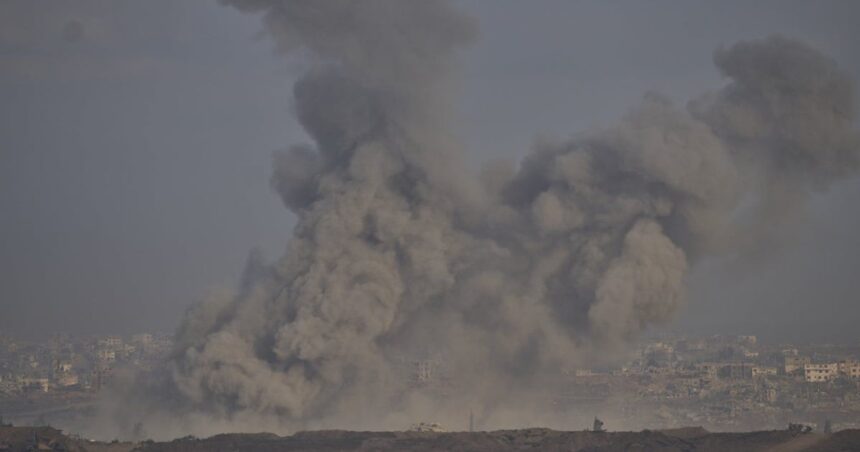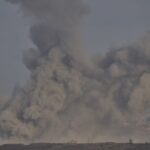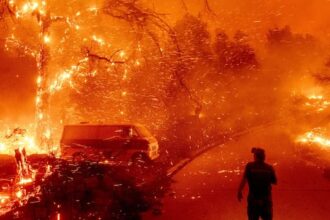The haunting wails of mothers echo through Gaza’s hospital corridors as medical staff rush between beds filled with the latest victims of Israel’s intensified bombardment campaign. At least 32 Palestinians, including 13 children, were killed in overnight strikes across Gaza’s central and southern regions, pushing the devastating death toll beyond 58,000 since the conflict began last October.
“We were sleeping when suddenly everything collapsed around us,” recounted Ahmed Samir, a 43-year-old father who lost two children in an airstrike on Nuseirat refugee camp. “There was no warning, no time to evacuate. These are civilian homes, not military targets.”
According to Gaza’s Health Ministry, the latest casualties included multiple families in Deir al-Balah and Khan Younis, where residential buildings were reduced to rubble in pre-dawn strikes. Medical facilities, already crippled by months of bombardment and severe shortages, struggled to treat the influx of wounded amid dwindling supplies of anesthetics and antibiotics.
The Israeli military maintains these operations target Hamas infrastructure and fighters, claiming they take “feasible precautions” to minimize civilian harm. However, UN humanitarian agencies have repeatedly questioned the proportionality of these strikes, noting the devastating impact on Gaza’s civilian population.
International aid organizations report catastrophic conditions across the territory, with 85% of Gaza’s 2.3 million residents displaced, many multiple times. The World Food Programme warns that famine conditions are spreading, particularly in northern Gaza where humanitarian access remains severely restricted.
“What we’re witnessing is unprecedented in modern conflict,” said Dr. Helena Ramsay from Doctors Without Borders. “The destruction of healthcare infrastructure, coupled with restrictions on aid delivery, has created conditions incompatible with human dignity.”
Meanwhile, diplomatic efforts continue to falter. Recent ceasefire negotiations in Cairo produced little progress, with both sides accusing each other of intransigence. Hamas demands a permanent end to hostilities and full Israeli withdrawal, while Israel insists on continuing military operations until all hostages are returned and Hamas is eliminated as a governing force.
The Biden administration has intensified pressure on both parties to reach an agreement, with Secretary of State Antony Blinken making his eighth visit to the region since October. Canadian officials have joined international calls for improved humanitarian access and protection of civilians, though critics argue more concrete action is needed.
Economic analysts note the conflict’s widening regional impact, with shipping disruptions in the Red Sea due to Houthi attacks costing the global economy billions. “This isn’t just a humanitarian crisis, but an economic one with far-reaching implications,” explains financial analyst Morgan Weinstein.
As night falls again over Gaza, families huddle in overcrowded shelters or damaged buildings, uncertain if they’ll survive until morning. The question haunting the international community remains: at what point does the protection of civilian life override political and military objectives, and who will ultimately be held accountable for what UN experts have described as potential war crimes?










